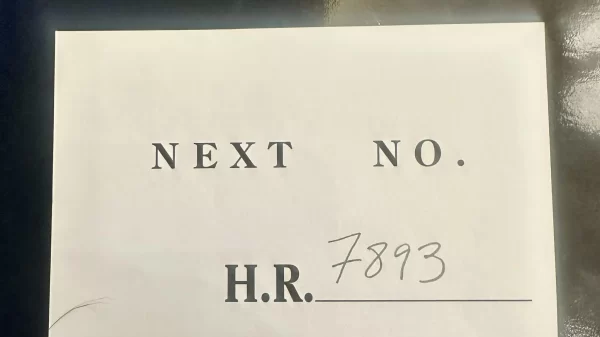By Larry Sims
When is recusal required of a judge? This question is front and center in the Alabama Sanctity of Marriage Amendment case. An amendment to the Alabama Constitution defining marriage as a union between one man and one woman was approved by 81% of Alabama voters. In spite of a clear consensus of Alabamans, Lower Court Federal Judge Callie Granade ruled the amendment unconstitutional in January of this year. The ruling has sparked a firestorm of controversy. Her authority to order Alabama Probate Judges to begin issuing marriage licenses to same sex couples has been called into question by Alabama Chief Justice Roy Moore.
Justice Moore issued an order for Probate Judges in Alabama to obey the Alabama Constitution and deny licenses to same sex couples. Initially, the majority of Probate Judges followed the order of Justice Moore. In a matter of a just few days many retreated from their original position, and began issuing the licenses. The matter will soon be heard by the entire Alabama Supreme Court. Meanwhile, the case is moving forward in federal court, and will likely be heard by the United States Supreme Court in June.
Will the Alabama case be given a fair hearing? The actions of two members of the court, Justice Kagan and Justice Ginsberg, raise a reasonable doubt. Both have presided over same sex weddings, an action which many believe demonstrates a clearly defined bias, thus tainting their ability to impartially rule on the matter
Attorney General Luther Strange spoke to the Calhoun County Alabama Republican Executive Committee February 2. General Strange responded to a question about the need for Kagan and Ginsberg to step aside. He admitted that their actions might be grounds for recusal, but he expressed doubt that either of them would. Calhoun County Circuit Court Judge Deborah Jones urged the Attorney General to ask for these two Justices to honor the Canons of Judicial Ethics and refrain from hearing the case. She also encouraged Strange to solicit the aid of the other Republican State Attorneys General in the call for recusal.
Jacksonville State University political science professor, Dr. William Lester, was at the meeting and heard the exchange between Strange and Jones. Lester pointed to the Supreme Court as the final appeal on the matter of recusal, and he questioned the power the Judicial Canons to force members of the high court to recuse. He did refer, however, to the power of Congress under the theory of “jurisdictional stripping.” Articles I and III of the Constitution gives to Congress power to limit the ability of inferior federal courts to hear or review particular matters. The Constitution also gives Congress the ability to transfer jurisdiction from a lower federal court to state courts. In some cases, Congress may even limit the Supreme Court’s ability to hear certain matters. This maneuver has been offered many times, but has succeeded in only a few cases.
In a breakfast meeting in Gadsden, Alabama, February 20th, Senator Richard Shelby was asked about the matter of recusal. Senator Shelby voiced strong support for the issue of the traditional definition of marriage. Shelby has stated that he is a cosponsor of a Constitutional Amendment to leave the right of defining marriage to the states. When asked if he would write a letter to Ginsberg and Kagan asking them to step aside, Shelby voiced reluctance using the separation of powers argument.
At the website of the American Bar Association the following Canons of Judicial Conduct are offered:
“Canon 1
A judge shall uphold and promote the independence, integrity, and impartiality of the judiciary, and shall avoid impropriety and the appearance of impropriety .
Canon 2
A judge shall perform the duties of judicial office impartially, competently, and diligently.
Canon 3
A judge shall conduct the judge’s personal and extrajudicial activities to minimize the risk of conflict with the obligations of judicial office.”
The language is simple and clearly defined. The average lay person should have no problem understanding the meaning. The question remains will Justices Kagan and Ginsberg honor this simple definition of proper ethical conduct? At stake is the legitimacy of the court. The term legitimacy in government is generally defined as “broadly accepted by the people.” If members of the Court are careless in the administration of their duties in a fair and impartial manner, the court’s legitimacy is called into question.
Larry Sims is a former member of the Alabama House of Representatives. He currently teaches political science at an Alabama community college.














































